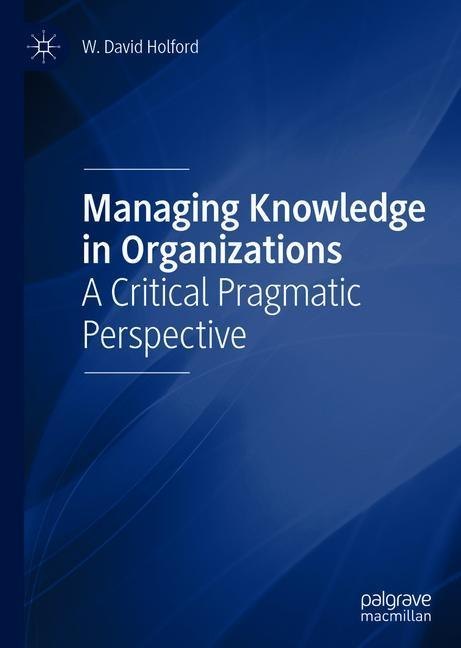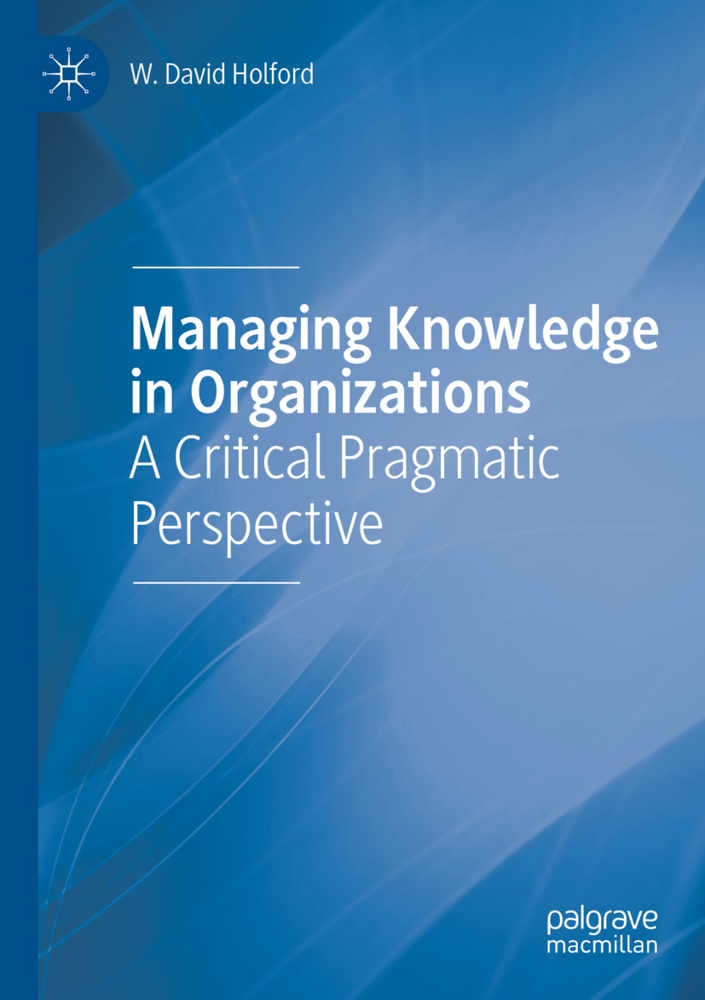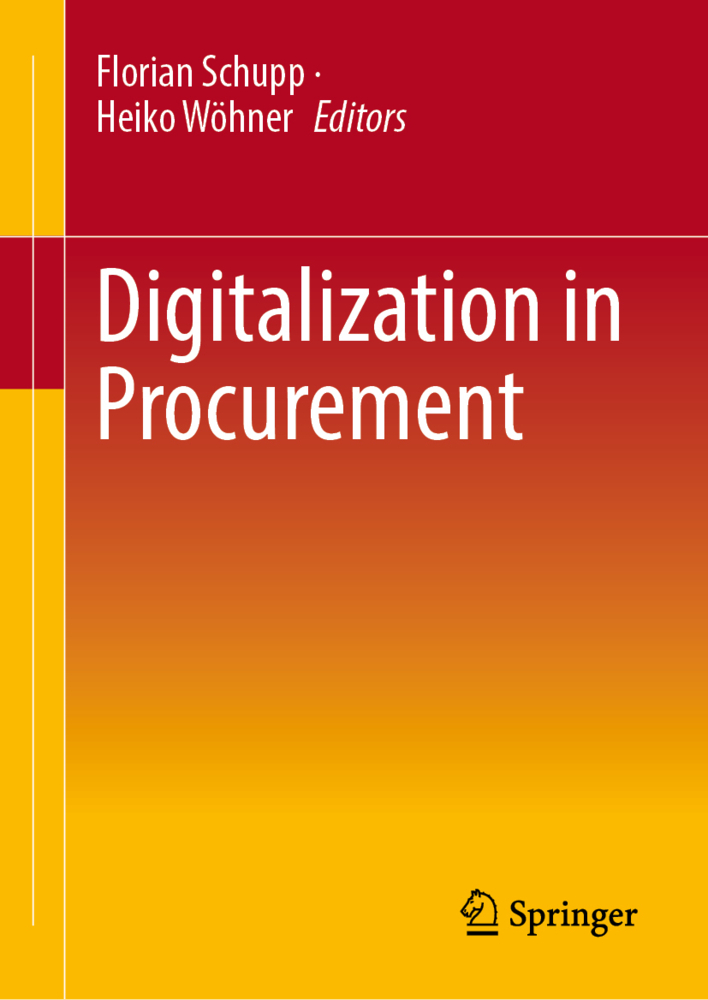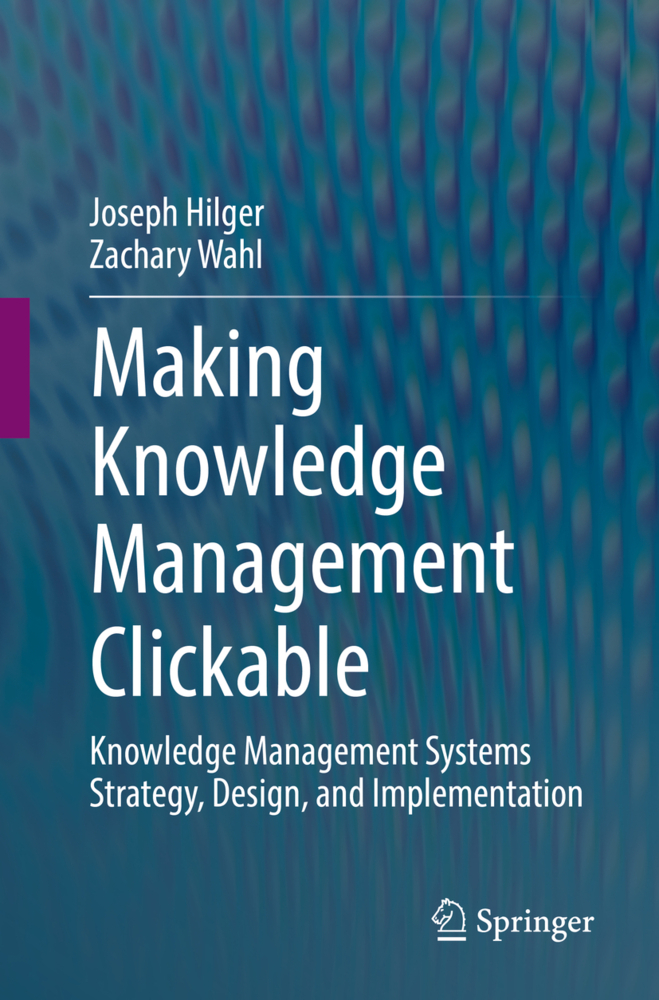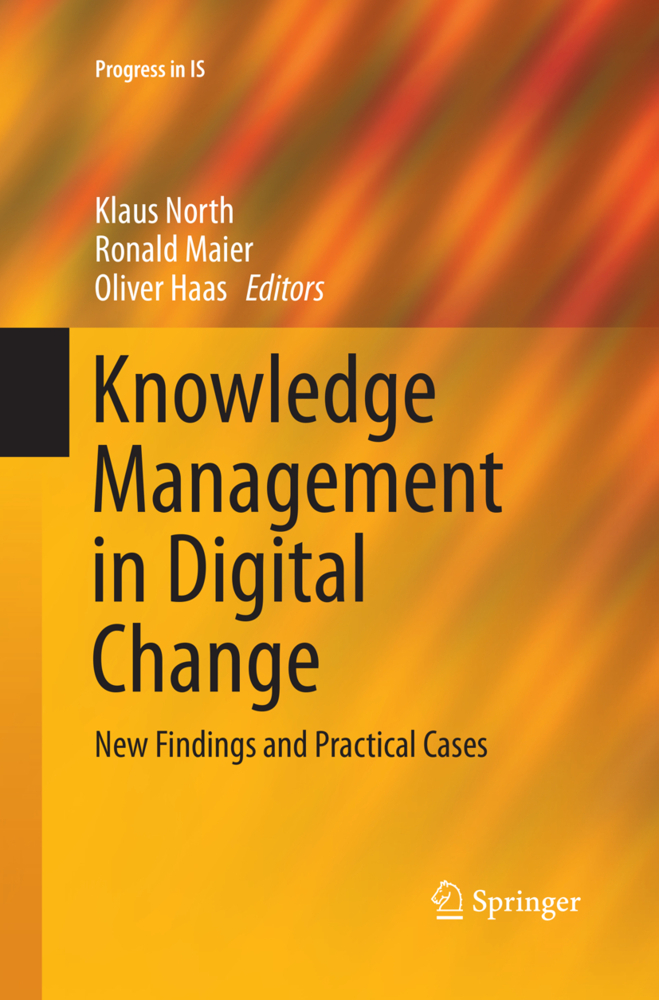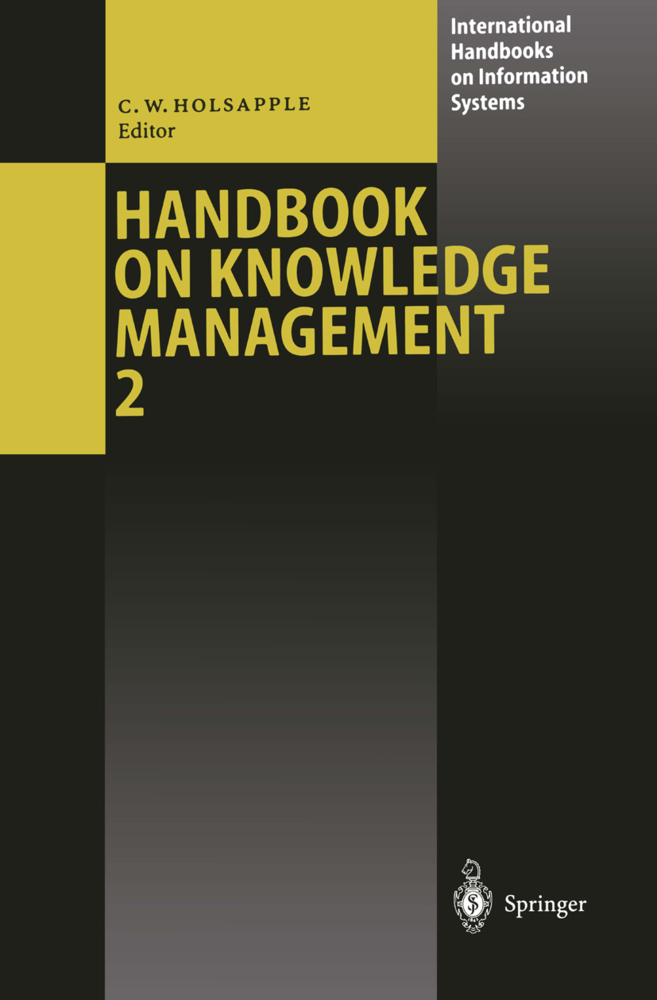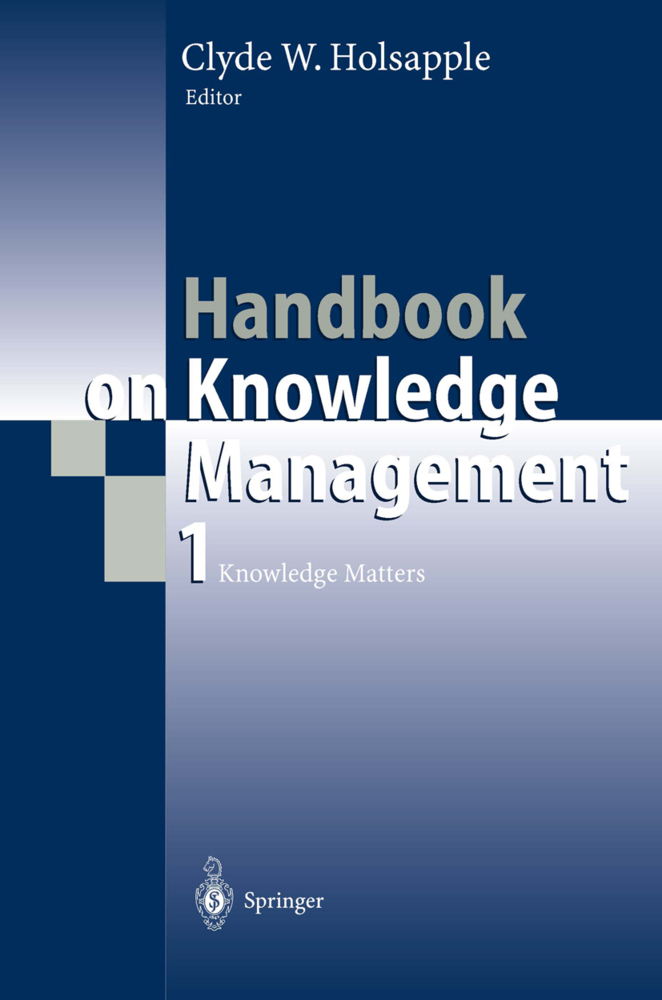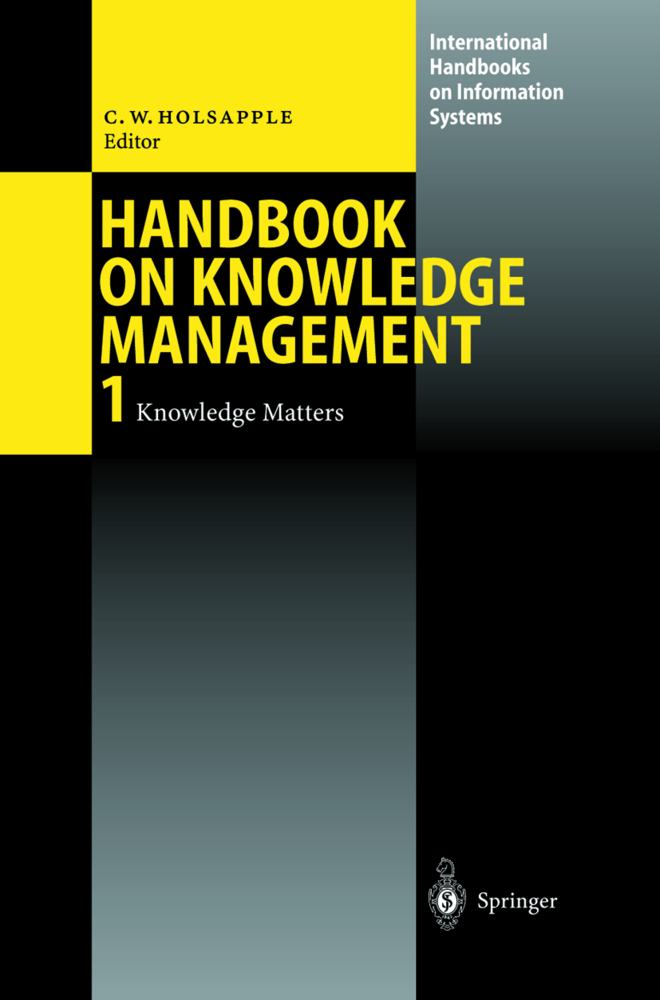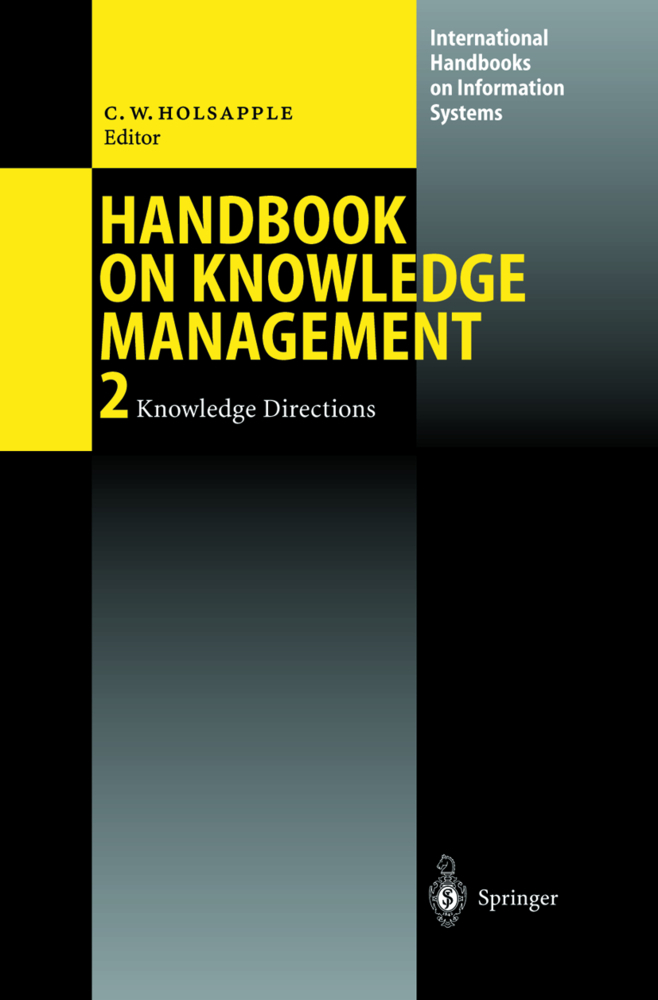Managing Knowledge in Organizations
A Critical Pragmatic Perspective
This book explores organizational knowledge and how it can be pragmatically exploited within many of today's socio-technical-economic contexts. It provides both conceptual and empirical findings across different organizational contexts, addressing areas which have either been under-developed, such as power in relationship to knowledge, or require further examination, such as the role a more holistic, action-oriented view can contribute towards identifying and retaining expert knowledge within an organization, especially within digital environments. Further, it looks at how different perceptions, mental models, beliefs, and emotions (or lack of), as well as differing actions and behaviors, affect our abilities to detect hidden risks. This book will guide researchers in rendering the relationship between the managing of knowledge and the presence of risk more visible.
W. David Holford is Professor of Management at the University of Quebec at Montreal, Canada. His field of interest focuses on organizational sense-making, knowledge theory and the assessment of hidden risk within organizational workgroups. His recent studies have focused on the identification and retention of expert tacit knowledge within knowledge intensive firms.
W. David Holford is Professor of Management at the University of Quebec at Montreal, Canada. His field of interest focuses on organizational sense-making, knowledge theory and the assessment of hidden risk within organizational workgroups. His recent studies have focused on the identification and retention of expert tacit knowledge within knowledge intensive firms.
1;Contents;5 2;Introduction;9 2.1;References;11 3;Chapter 1: The Ambiguous Knowledge of Mètis: Enter the Street-Smart Expert;13 3.1;The Greek Heritage of Western Knowledge-The Rise of Abstractionism;14 3.2;Mètis as Human Expert Knowledge;17 3.3;What Is Mètis?;19 3.4;Mètis' Long Acquisition and Quick Deployment Across Mindfulness;20 3.5;The Landing of US Airways Flight 1549 as an Example of Mètis;22 3.6;Mètis as Cause and Effect of Democratic Social Processes;24 3.7;In the Next Chapter...;27 3.8;References;27 4;Chapter 2: From Ancient Greece to the Digital Workplace: A Story of Mètis' Usurpation;31 4.1;Philosophy's Ostracization of Mètis;31 4.2;The Establishment of Techne as Search for Efficiency;33 4.3;Digital Taylorism's Erosion of Human Mètis and Decisional Powers;35 4.4;Specific Examples of Organizational Policies Thwarting Mètis;38 4.5;The Paradoxical Effect of Algorithmic Efficiency;40 4.6;In the Next Chapter...;42 4.7;References;43 5;Chapter 3: The Dilemma of Developing and Maintaining High-Level Expertise;47 5.1;Mètis as Both Constructed Entities and Action;48 5.2;The Elusive Nature of Tacit Knowledge;51 5.3;Understanding Tacit Knowledge;52 5.4;Can Tacit Knowledge Be 'Converted' to Explicit Knowledge?;55 5.5;Knowledge as Personal Construction;57 5.6;Collins' Weak, Medium, and Strong Tacit Knowledge;58 5.7;Management Issues Regarding the Irreducible Nature of Tacit Knowledge/Mètis;59 5.8;In the Next Chapter...;63 5.9;References;63 6;Chapter 4: IT's Impressive, but Sometimes Misleading Track Record;68 6.1;Robots, Automation, and AI;68 6.2;AI and the Turing Test;71 6.3;IBM's Watson and Google's AlphaGo Deconstructed;74 6.4;The Turing Test as a Test of Complexity, Uncertainty, and Ambiguity;76 6.5;AI Versus Human Decision-Making;79 6.6;Decision-Making in the Face of Uncertainty, Complexity, and Ambiguity;80 6.7;In the Next Chapter...;84 6.8;References;85 7;Chapter 5: Power and Its Enactment: A Traditional View and Its Consequences;91 7.1;Power-as-Possession;92 7.2;The Impact and Pertinence of Enactment Phenomenon;94 7.3;Impact of Power-as-Possession on Mètis;97 7.4;In the Next Chapter...;98 7.5;References;98 8;Chapter 6: Knowledge, Power, and Hidden Risk;102 8.1;A Few Words on Risk;103 8.2;Blindsided Toward Unknown Risk;104 8.3;Organizational Configurations and Institutional Logics Thwarting Mètis;108 8.4;Mitigating Unknown Risk Across Mètis and Co-active Power;111 8.5;In the Next Chapter...;112 8.6;References;113 9;Chapter 7: Knowledge and Power Across the Material-Discursive Practice of Agential Realism;117 9.1;The Material-Discursive Practice of Agential Realism;119 9.2;A Few Words on the Information Systems' (IS) Interpretation of Critical Realism;121 9.3;An Agential Realist Framework on Knowledge and Power;125 9.4;Enter Mindfulness, Democratic Processes, and Knowledge Enrichment;129 9.5;In the Next Chapter...;135 9.6;References;135 10;Chapter 8: The Working Group as Expert;140 10.1;The Challenges and Potential Advantages of the Working Group as Heterogeneous Individuals;141 10.2;The Differentiated Workgroup: Lower Risk Across Mindful Conversation;144 10.3;In the Next Chapter...;151 10.4;References;151 11;Chapter 9: Enhancing Group Expertise and Performance Across Technology;155 11.1;Avoiding the Efficiency Paradox of Technology-Centric Organizing;156 11.2;The Case of Computer-Supported Cooperative Work;159 11.3;Human-Centric Design and Affordance Across Agential Realism;162 11.4;In the Next Chapter...;166 11.5;References;166 12;Chapter 10: The Integral Role of Conversation in Business Architectures;170 12.1;Conversation as Both a Core Process Indicator and Method of Inquiry;171 12.2;Management's Challenge of Recognizing Conversation as a Human-Embodied 'Technology';175 12.3;References;177 13;Epilogue;182 14;Index;184
Holford, W. David
| ISBN | 9783030411565 |
|---|---|
| Artikelnummer | 9783030411565 |
| Medientyp | E-Book - PDF |
| Copyrightjahr | 2020 |
| Verlag | Palgrave Macmillan |
| Umfang | 187 Seiten |
| Sprache | Englisch |
| Kopierschutz | Digitales Wasserzeichen |

